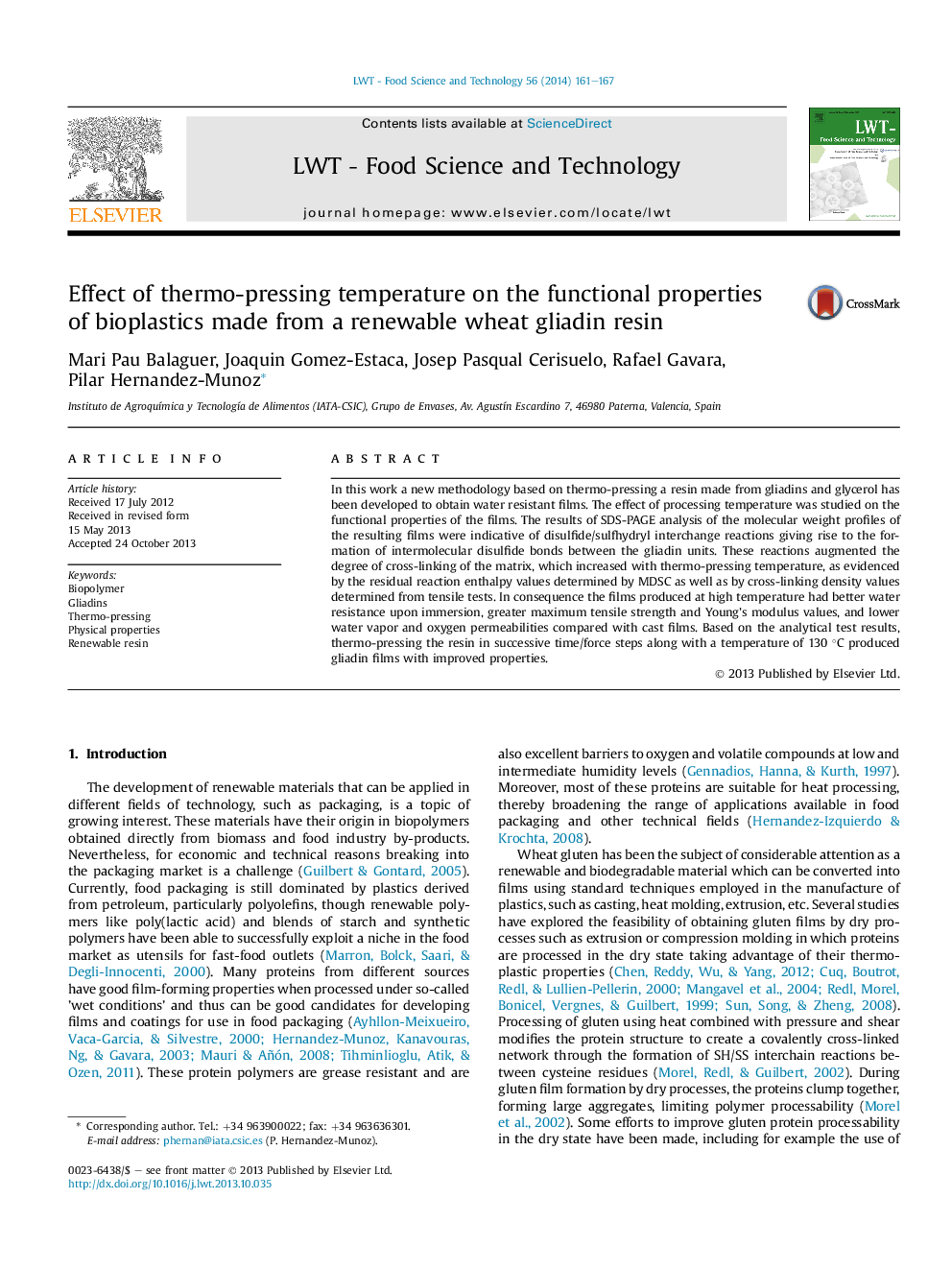| Article ID | Journal | Published Year | Pages | File Type |
|---|---|---|---|---|
| 4563892 | LWT - Food Science and Technology | 2014 | 7 Pages |
•Resin made from gliadins and glycerol ready to be thermo-pressed into films.•Thermo-pressing promoted intermolecular cross-linking of gliadins.•The optimal processing temperature was 130 °C.•Resulting films were water resistant with improved mechanical and gas barrier properties.
In this work a new methodology based on thermo-pressing a resin made from gliadins and glycerol has been developed to obtain water resistant films. The effect of processing temperature was studied on the functional properties of the films. The results of SDS-PAGE analysis of the molecular weight profiles of the resulting films were indicative of disulfide/sulfhydryl interchange reactions giving rise to the formation of intermolecular disulfide bonds between the gliadin units. These reactions augmented the degree of cross-linking of the matrix, which increased with thermo-pressing temperature, as evidenced by the residual reaction enthalpy values determined by MDSC as well as by cross-linking density values determined from tensile tests. In consequence the films produced at high temperature had better water resistance upon immersion, greater maximum tensile strength and Young's modulus values, and lower water vapor and oxygen permeabilities compared with cast films. Based on the analytical test results, thermo-pressing the resin in successive time/force steps along with a temperature of 130 °C produced gliadin films with improved properties.
